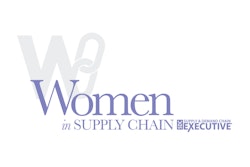
More than half (51%) of U.S. respondents said they would exclude a company from their job search if its values and stance on diversity and inclusion (D&I) didn’t match their own beliefs, according to a study released by Appcast and Boston Consulting Group (BCG).
U.S. respondents 30 years and younger (72%) were most likely to agree with this statement compared to all U.S. respondents (63%) and all respondents globally (69%).
“The pandemic and increased focus on important issues like racial equity are reshaping how, where and by whom work gets done,” says Heather Salerno, SVP of marketing at Appcast. “Employers committed to diversity and inclusion and that offer flexible work arrangements are likely to attract top talent and emerge stronger post-pandemic. We’re pleased to share these important findings with organizations to support recruitment and CSR strategies.”
“People got a taste of remote work during the pandemic, and it has completely changed their expectations,” says Allison Bailey, BCG managing director and senior partner. “It sends a very clear message that a third of U.S. employees would prefer not going to the office at all. Employers can’t treat working from home as an occasional perk anymore.”
From BusinessWire:
- The report found that less than half of workers today (49%) are now working completely on-site, and the number of completely remote workers has risen to 28%. Those working both on-site and remote only increased 3% during the pandemic.
- The report also finds an increased desire among U.S. workers for flexible work options. Post-pandemic, only 14% of U.S. employees would prefer to work completely on-site and a whopping 50% would prefer a combination of both remote and on-site work arrangements. Further, the report finds that 35% of U.S. respondents would prefer to work completely remote compared to 24% of respondents globally.
- When asked to rank top job preferences, “good work-life balance” now ranks first, followed by “job security” and “financial compensation” among U.S. workers. Globally, “good relationship with colleagues” topped the list, followed by “good relationship with superior” and “good work-life balance.”




![Pros To Know 2026 [color]](https://img.sdcexec.com/mindful/acbm/workspaces/default/uploads/2025/08/prostoknow-2026-color.mduFvhpgMk.png?auto=format%2Ccompress&bg=fff&fill-color=fff&fit=fill&h=100&q=70&w=100)







![Pros To Know 2026 [color]](https://img.sdcexec.com/mindful/acbm/workspaces/default/uploads/2025/08/prostoknow-2026-color.mduFvhpgMk.png?ar=16%3A9&auto=format%2Ccompress&bg=fff&fill-color=fff&fit=fill&h=135&q=70&w=240)





